The Volvo India Innovation Summit is all about celebrating the spirit of innovation, and exploring new ways to thrive in the current sustainable transportation ecosystem. With ‘collaboration’ as the key word, Volvo India invites partners, entrepreneurs, organizations, subject matter experts and academicians to strive together for innovative transportation solutions. Sarada Vishnubhatla attended the summit – followed by innovation awards – and garnered some insights.
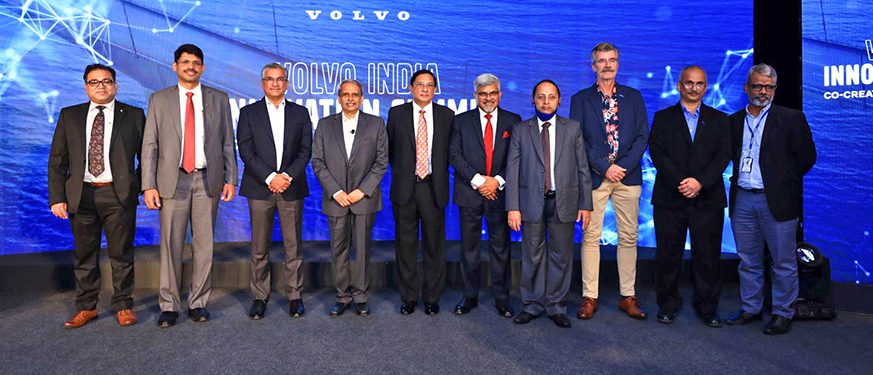
The road which has brought us here is different from the one that will take us ahead. This thought holds true for Volvo India. And the same was obvious at the Volvo India Innovation Summit held in November last year.
The key objective of the summit and instituting the awards is to identify, appreciate and recognize innovative minds and encourage collective achievement of higher ambitions by setting new standards, and in turn, to ignite a cycle of innovation.
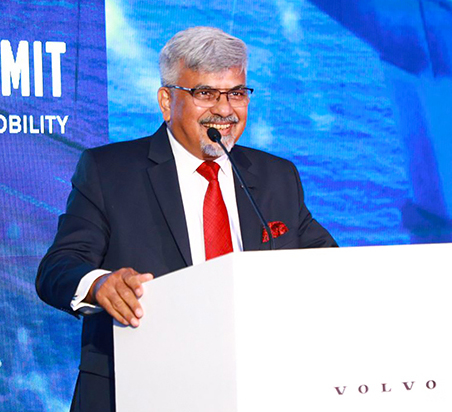
Kamal Bali, President & Managing Director, Volvo Group India says: “Now is an ideal time to walk together on the path of innovation to create a sustainable impact on future. India is set to play a key role by welcoming over 1000 global companies with their engineering research and development centers here. We are the 4th largest unicorn base in the world. By 2025, we believe that we will have more than 100 unicorns creating 1.1 billion direct jobs.”
C R Viswanath, Vice President, Volvo Group Truck Technology, India shares: “Our vision is to be the most desired, successful and sustainable transport and infrastructure solution provider in the world. The challenge is to use the ever-advancing technology to create a better world. We strongly believe that partnership can help change the future of the society. CampX by Volvo Group is a prime example of this where partners, startups, and SMEs come together and share their inventions and co-develop innovations with us. And that is the purpose of this summit.”
Attracting Innovation
An eminent panel of industry leaders graced the summit, which included Vinayak Chatterjee, Expert, Infrastructure Sector and Chairman, CII National Council on Infrastructure, Lennart Börjesson, Senior Vice President, Volvo Group HQ, Sweden, Kris Gopalakrishnan, Chairman, CII Center of Excellence for Innovation, Entrepreneurship and Start-ups and Chair, Axilor Ventures, Sanjeev Sharma, CEO, ABB, Ramesh Ramadurai, CEO, 3M, Dimitrov Krishnan, Vice President and Head, Volvo Construction Equipment, and K R Sekar, President, CVIC and Partner, Deloitte.
India is in synchronicity with the world when it comes to development today and is more and more applying latest technologies, including, AI, cloud, machine learning, with a keen focus on sustainability. Connectivity is the mainstay that is commanding the way we transport today.
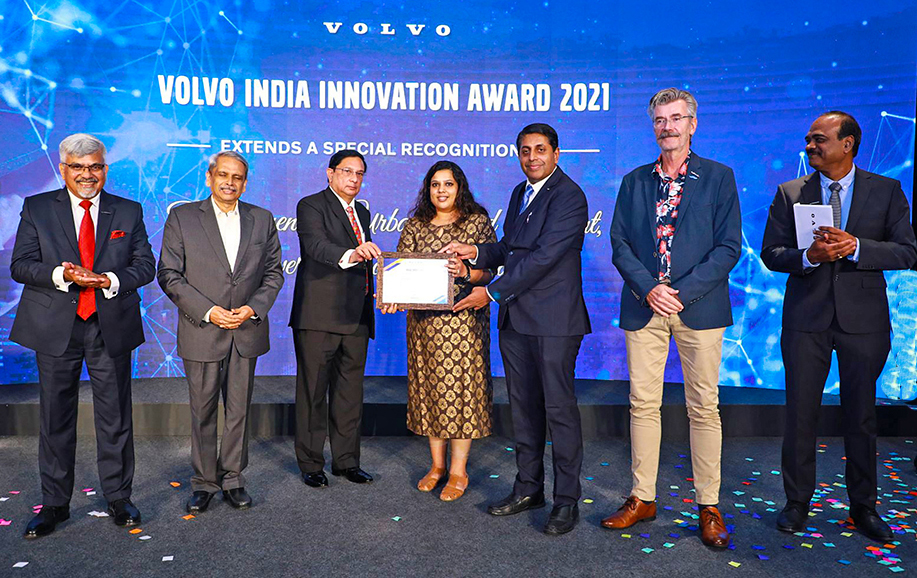
The leaders at the summit agreed that this particular road mixes purpose, innovation, and collaboration. This is in context that India also needs to generate about 100 million non-agricultural jobs in the next decade or so. The dream is not distant because as on today, India is slated to grow at 9.2% CAGR – the highest in the world.
Lennart Börjesson, Senior Vice President, Volvo Group HQ, Sweden participating in the first such summit by Volvo in India, states: “We have the ambition to shape the future of transportation infrastructure solutions. Advanced engineering, speed of development and demand is on the rise. We are developing automated transportation and are changing the materials with a focus on sustainability and circularity. And this Innovation Summit is about being a product owner – from cradle to grave. And in a unique fashion, we are inviting to team up with those who are considered our competitors normally.”
One of the multiple golden opportunities for India lies in the global value chain worth over US $4 billion poised for a rebalance in the next 3-4 years. Other domains include mobility, and alternate fuels which can gain from a tremendous boost in innovation and collaboration.
1.50 of Net Zero Emissions
As per the pre-requisite on emissions in the Paris Agreement, global organizations including the Volvo Group are fully committed to aligning their targets to 1.5 degrees. Volvo India is focused on reducing emissions by 40% per vehicle kilometer by 2030.
Bali explains: “This means 35% fully-electric vehicle sales by 2030 for all Volvo products. Volvo Trucks has set an even higher target to have 50% trucks as electric by 2030. The future we are committing to is 100% fossil free, 100% safe and 100% productive.”
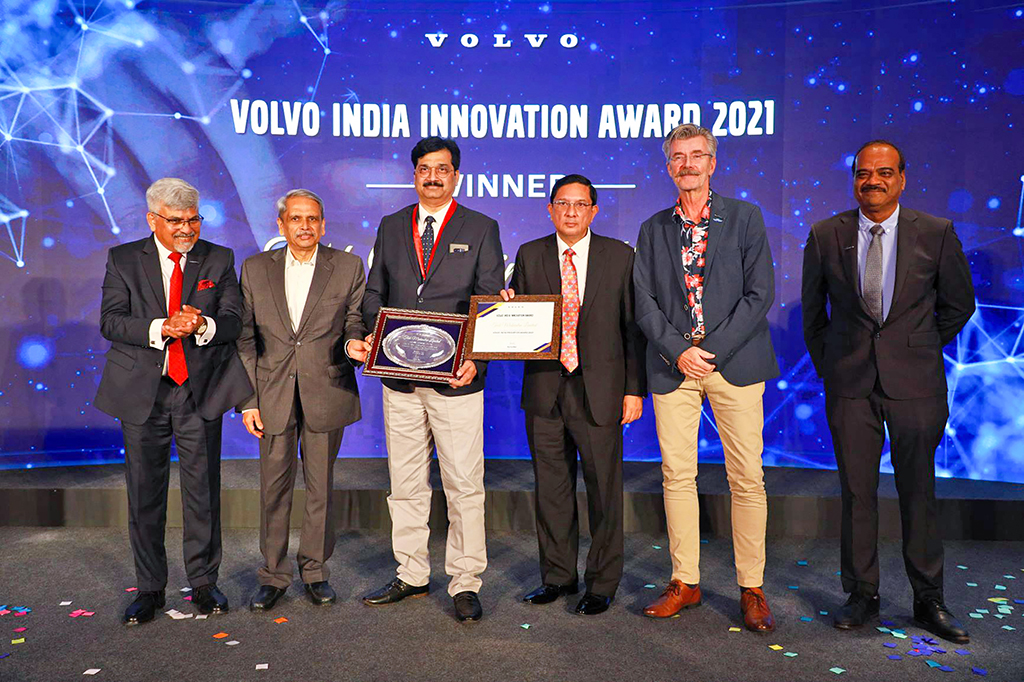
Highlighting 7 imperatives in mobility Bali recounts are EVs and clean fuels, automation, new transport concepts, connectivity and digitalization, new business models, data that brings in big opportunities besides future regulations.
Vinayak Chatterjee, Expert, Infrastructure Sector and Chairman, CII National Council on Infrastructure opines: “In response to the travails of infrastructure sector, India has embarked on a slew of innovations starting with public policy. And prime examples of transportation innovations initiated by the government include 10% mandatory mixing of ethanol, and 100% bio-toilets in our trains. The best part is that the government has accomplished this and much more in a short span of last one year.”
Indian government is driving infrastructure development by a sturdy policy framework supported by National Infrastructure Pipeline, National Monetization Plan, Gati Shakti and NSWS or National Single Window System for business approvals. Giving tremendous support are the development of financial institutions, public procurement policy, political will and swarming global long-term capital interest, coupled with the privatization with the help of PPP.
Driving the Big Idea of Innovation
Be it Europe or India, innovation, ideas and solutions work the same way though the context of the problems may differ as per geography.
Dr. Sudeendra Koushik, Innovation Director and Head – CampX, Bengaluru, Volvo India highlights that Volvo has always focused big on internal innovations. He adds: “We also work towards external innovation involving other stakeholders and achieve our vision for which CampX is the funnel. At this Innovation Summit, we have the presence of companies with solutions which are interesting for us. We see this as a melting pot to bring all these conversations under one umbrella with CampX as one of the pillars followed by the Innovation Awards which recognizes what others are doing. Going forward, we wish to make this an annual affair.”
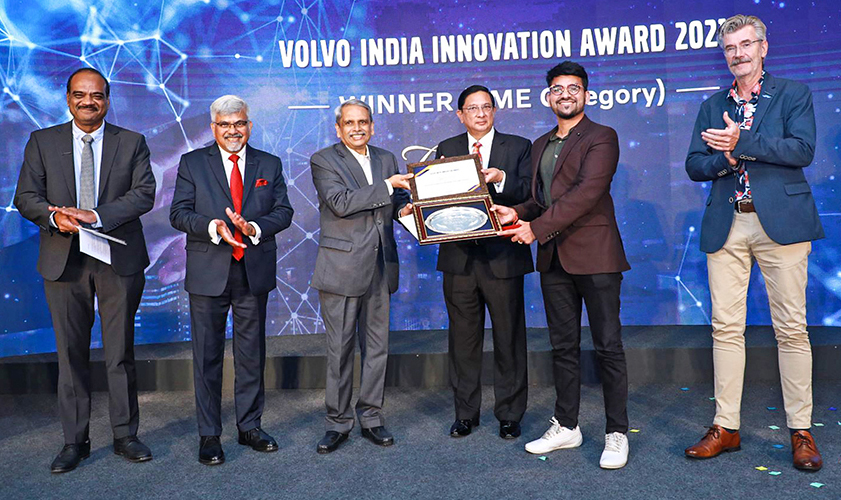
Bjorgssen shares: “The pool of talent that India and Sweden possess do not differ much. Going by the challenges in the Indian transportation system, I feel that it will take time to deploy an automated truck. But combining two different backgrounds and thinking is fruitful. Ultimately, it is not so much about India and Sweden, but more about engineers who are looking at problems in the transportation system and bouncing ideas. So, we think that collaboration will throw up better ideas.”
Volvo India Innovation Awards
The awards looked at diverse proposals that address the entire ecosystem which works with a common objective, using insights and innovation to bring sustainable future for mobility.
Bali shares the details: “The areas covered are electric vehicles, automation, infrastructure solutions, connectivity, and even the impact of cultural and social behavior in the quest for better cities. Some projects sought to provide positive impact to elderly, others focused on citizens, cities, quality of mobility, drivers, climate impact, and also the ability to generate new employment opportunities.”
Categorized into 2 parts, the Volvo India Innovation Award 2021 bestowed the award for SMEs and startups on Zypp Electric. The startup is working on EV-based last mile connectivity solutions, while the winner in the open category was Tech Mahindra for their energy and fleet management solutions in sustainable mobility. Special recognition award was won by the Urban Land Transport department, Government of Karnataka for enabling and demonstrating collaborative mobility solutions to improving the quality of life for citizens.